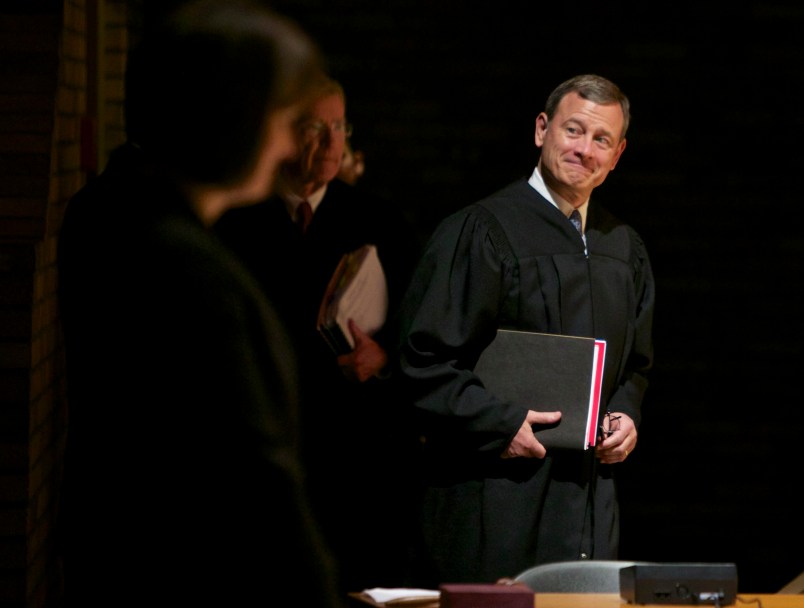The tide continues to come in for big money in politics.
In a 5-4 ruling on Wednesday, the Supreme Court struck down the aggregate limits on overall campaign contributions. The decision was met with universal condemnation from campaign finance and ethics watchdogs, the same people who for years have criticized the court’s 2010 Citizens United ruling. That ruling brought us the super PAC era, with outside groups spending unlimited amounts of money and “dark money” groups doing the same while keeping their donors secret. Exactly what practical effect Wednesday’s ruling will have on donor behavior is still unknown. But one thing is clear. Rich donors have more options than at any time in recent memory.
The decision takes the lid off the total amount of money a donor can give to candidates, political parties, and traditional political action committees (PACs) during a given election cycle. It’s important to remember that the individual contributions are still capped. Donors can still only give a maximum of $5,200 directly to a candidate per cycle (primary + general), a maximum of $64,800 to a national party committee over two years, a maximum of $20,000 to a state party committee over two years, and a maximum of $20,000 to a PAC over two years.
But until Wednesday’s ruling, donors couldn’t give the maximum $5,200 to an unlimited number of candidates. Instead, donors could only give an aggregate of of $48,600 to candidates and $74,600 to political parties and PACs over a two-year election cycle. So $123,200 total. (Shaun McCutcheon, the Republican activist who brought the case, wanted to give $1,776 to 27 candidates. But that would have been over the limit. So he brought the lawsuit. The national Republican Party joined him.)
In his dissenting opinion to Wednesday’s ruling, Justice Stephen Breyer crunched the numbers to show how much an individual donor could now give if he or she maxed out during a given cycle to a party’s national committees (both Republicans and Democrats have three), all 50 of a party’s state committees, and all 435 party candidates for House seats and 33 party candidates for Senate seats. Over a two-year cycle, Breyer wrote, a donor can now conceivably give up to $3.6 million in campaign contributions to candidates and parties. And that doesn’t even factor in PACs.
For comparison, only 13 donors in 2012 gave more than $3.6 million in disclosed money to outside spending groups, according to The Center for Responsive Politics. In other words, while mega donors like Sheldon Adelson (who gave outside groups more than $92 million in 2012) and Harold Simmons (who gave more than $26 million) get a lot of headlines, the vast majority of even upper-echelon donors didn’t cross the $3.6 million mark in 2012.
In his dissent, Breyer imagined how parties might make it easier for wealthy donors to make multi-million donations, by creating “joint” committees that include national and state committees, as well as candidates, who could receive the maximum amount of money and then divvy it up among the committees and candidates.
“Without any aggregate limit, the law will allow Rich Donor to write a single check to, say, the Smith Victory Committee, for up to $3.6 million,” Breyer wrote.
Observers see Wednesday’s ruling as an opportunity for the Democratic and Republican parties to reclaim some of the power and resources that super PACs and dark money groups have attracted since 2010. Republican National Committee Chairman Reince Priebus has suggested as much in his reaction to the ruling.
In a statement issued after the ruling was released, Preibus wrote that the decision was “an important first step toward restoring the voice of candidates and party committees and a vindication for all those who support robust, transparent political discourse.” Later in the day, Preibus appeared on MSNBC, where he elaborated.
“Look, I don’t disagree with Citizens United,” Preibus said. “I think it’s a good case. I think that we should all be free and exercise our First Amendment rights. But this is a victory today for people who want to see political parties and candidates on the same playing field or a little bit closer to the same playing field as the First Amendment was intended to allow us to be.”






